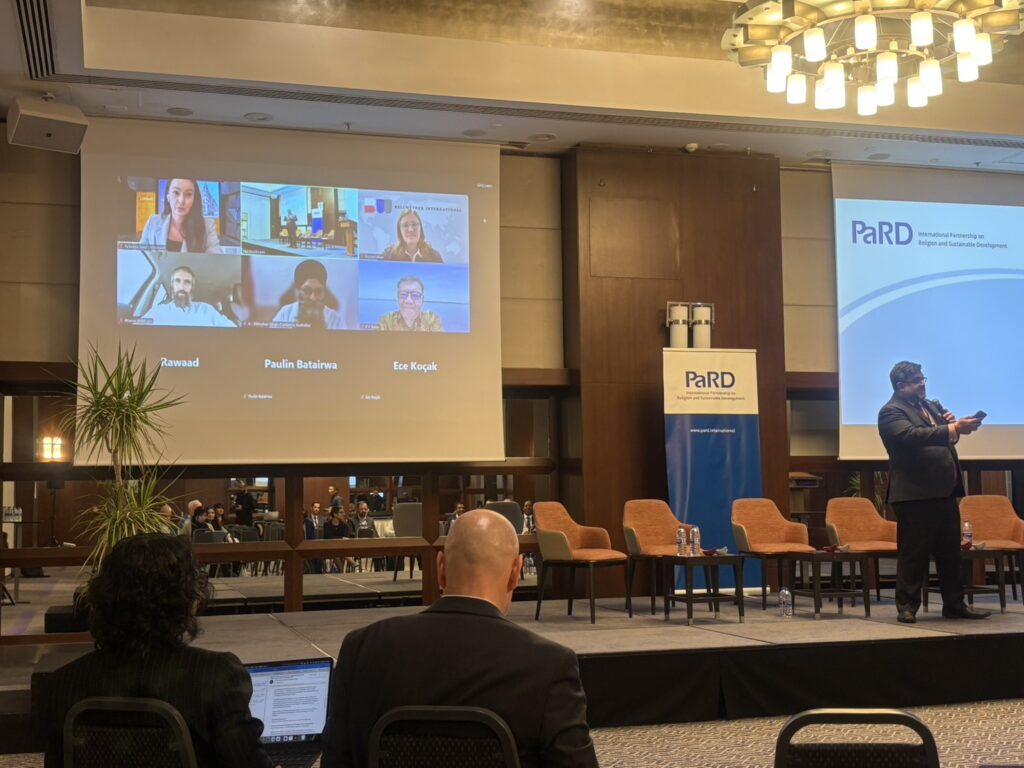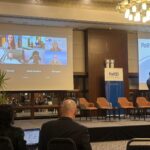Notes and Talking Point Presented by K V Soon, Vidyananda at the
PaRD Annual Forum on Religion and Sustainable Development 2025
Faith-Inspired Action for Food Security, Justice, and
Well-being
The world, as a collective human endeavour, is being dramatically reshaped by digital innovation. We are not just observing this process; we are living inside it.
The Digital Revolution: Capacity and Crisis
Digital technologies offer humanity incredible capacity for good, reflecting our inherent gift of creation. We see this in the unparalleled efficiency and access they provide—from organising humanitarian aid to democratising global knowledge.
However, the rapid nature of this change demands critical engagement. We must speak candidly about the deep shadows: the amplification of a global digital divide, the relentless erosion of privacy, and the rise of algorithmic bias that targets our most vulnerable populations. Our societies are now organised by an attention economy that profits from distraction and discord. This has fundamentally altered not just how we communicate, but the very nature of our social and moral discourse.
The Peril of Passivity: The Consumer Mindset
In the face of this revolution, the community of faith has largely been standing on the sidelines. We risk becoming a mere bystander, watching the foundations of the future being laid without our input.
The difficult truth is that many of our spiritual authorities have become simple consumers of technology and data. They utilise the tools—the social platforms, the communication networks—but they often lack the technical and ethical literacy to understand the deep philosophical and moral implications of those tools.
This is a critical flaw. If we act only as users, we surrender our moral authority. We cannot offer a robust value-add to the global discussion on AI governance if we do not critically comprehend the systems being built. We must move from being passive consumers to being active ethical stewards.
The Crisis of Connection: Isolation in the Digital Sphere
This passivity directly undermines the well-being of the people we serve.
In this moment of unprecedented digital access, many in our communities—particularly the young—are struggling with profound disconnection and mental health challenges. The promise of infinite connection often delivers chronic isolation. We are seeing rising rates of anxiety and depression, exacerbated by platforms that encourage relentless, filtered self-presentation.
At its core, the purpose of faith is to foster deep connection: connection to the transcendent, connection to the human family, and connection to one’s authentic self. When algorithms are engineered to profit from our distraction, these vital spiritual anchors begin to fail. To address this crisis, our leaders must be equipped to understand the intersection where digital behaviour meets spiritual and psychological health.
The Mandate to Intervene: Education and Impact
To reclaim our moral voice, we must fundamentally restructure our knowledge base. The solution is education—not just technical training, but a comprehensive curriculum focused on usage and impact.
Our spiritual guides need to know more than how to use the technology; they need to understand why and how it affects the human person and the structures of justice. This training must enable them to analyse the ethical calculus of AI systems and the power dynamics of Big Data.
This education is the foundation that allows us to fulfil our core mandate: to intervene constructively in the relationship between technology and society, ensuring that human dignity remains the core operating principle.
The Immediate Step: Investing in Spiritual Guides
The most immediate and concrete action we can take is to develop formal, robust education for our current and future spiritual guides and leaders.
This curriculum should be focused on Digital Moral Leadership. It will empower leaders to better serve their congregations by equipping them to:
- Analyse the ethical dimensions of technology in daily life.
- Counsel people struggling with digital overwhelm and fragmentation.
- Integrate principles of digital stewardship into their community teachings.
The Strategic Imperative: Global Intervention
Finally, we must recognise that our responsibility extends beyond our local communities. In the longer and more strategic term, the global community of faith needs to move up the chain of influence and intervene at the international level on governance and ethics.
We must bring the wisdom of our collective traditions to bear on bodies that regulate AI and data. This is not about seeking political power, but about asserting moral authority.
This provides our ultimate, concrete goal: With shared spiritual values of justice, compassion, and dignity, we, as faith leaders, must unite to develop a universal ethical framework. This framework would be a non-sectarian, unified declaration based on our shared principles, ensuring that technology serves humanity and not the reverse.
We must intervene to shape the future, not merely react to it. Let us commit today to becoming the moral architects of the digital age.











